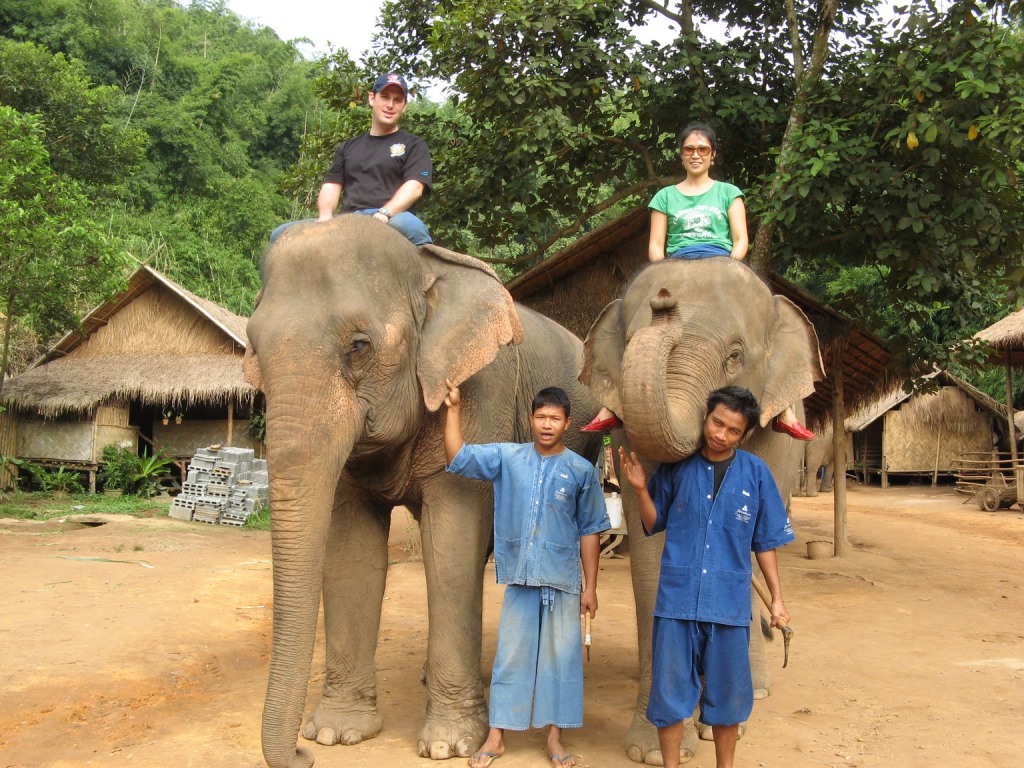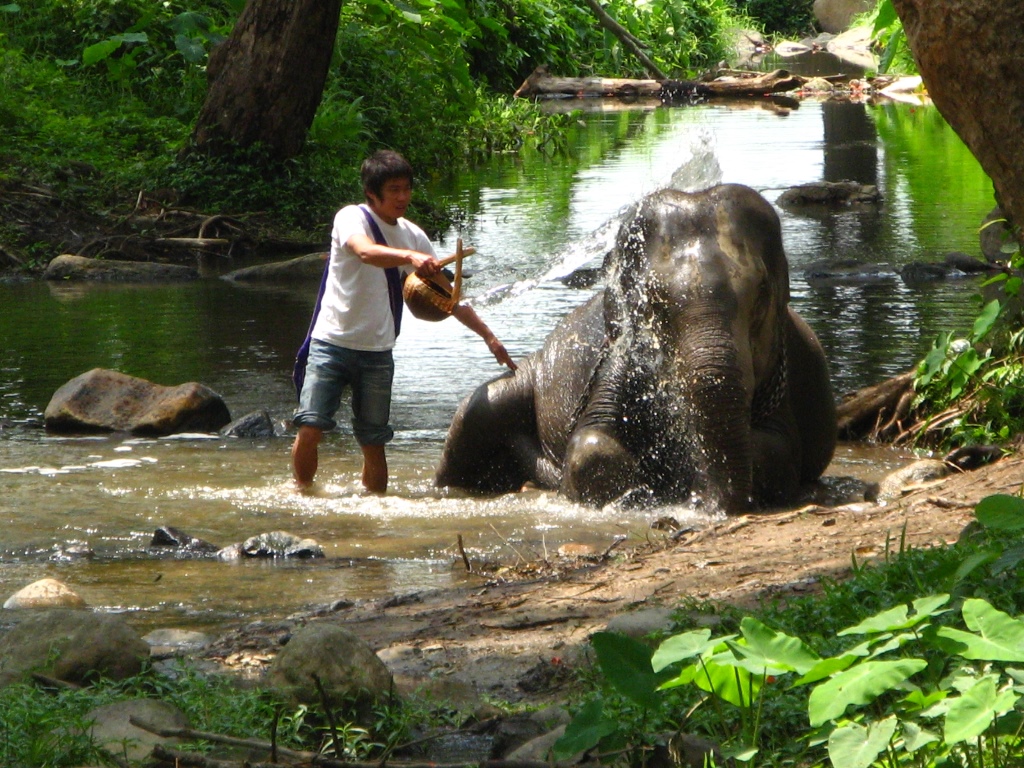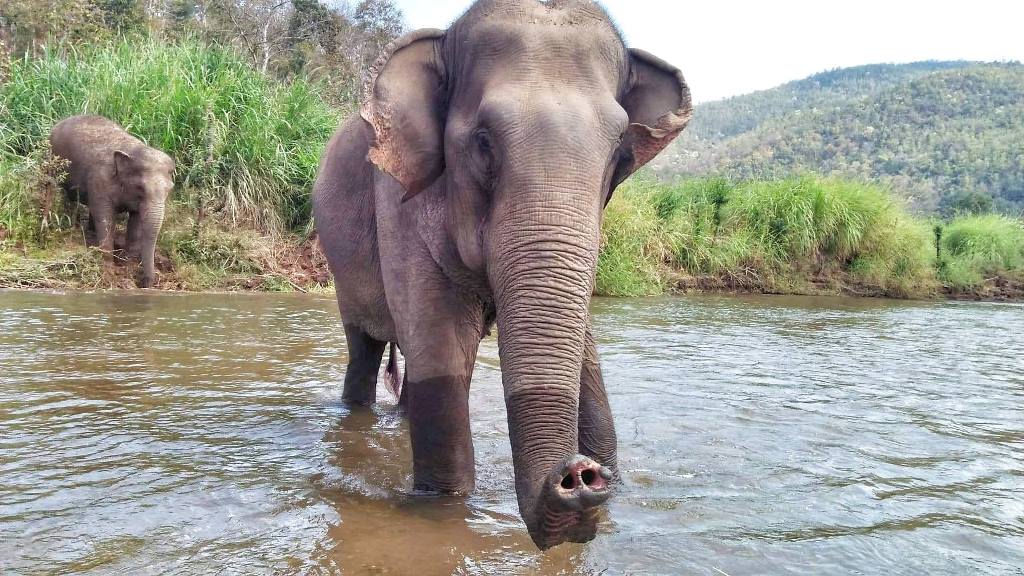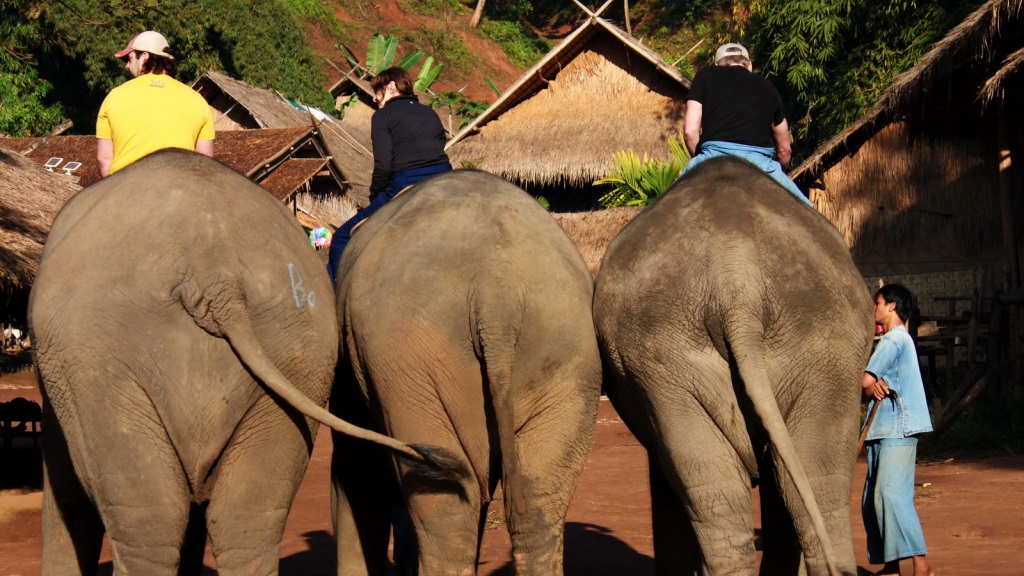Ethical Elephant Experiences in Thailand
11 august 2023
Regarded as one of Earth's most majestic beings, our first encounter with an elephant – gazing into its eye for the first time, and having those eyes recognize you – is often one we will never forget.
Yet, this profound connection, reflective of the relationship between humans and elephants, has given rise to complex conversations and debates that probe the ethics surrounding elephant encounters, particularly around elephants in captivity.
However, the ethics surrounding elephant tourism in Thailand are far from simplistic, and remain a subject of growing debate. These questions, both intriguing and profound, have evolved far beyond simplistic judgments. Is it ethical to include a visit to an elephant camp or sanctuary in travel itineraries? Should elephants continue to be held in captivity? Better yet, why were they placed there in the first place? While these inquiries may seem ambiguous, they illuminate a narrative that transcends mere pros and cons, the black and white – exposing a nuanced, multifaceted relationship between elephants and humans, especially in regions like Thailand.
Elephants, wild and majestic, were never intended for captivity – just like any other wild animals out there. But history reveals a different reality. For centuries in Thailand and Burma, men and elephants have coexisted before any lessons of morality or metrics of righteousness came into play. Humans, known as mahouts, domesticated these remarkable creatures for transportation, labor, and warfare, forging bonds that endure for lifetimes.


The last century, which witnessed elephants being employed in the logging industry, has ironically – along with other agricultural and urbanization practices – hastened the erosion of their natural habitats. Thailand’s 1989 ban on logging has further suddenly left thousands of elephants and their mahouts without livelihoods. Bereft of natural habitats, these elephants were herded into camps, which grappled with the challenges of providing proper care. These new challenges came with new questions to be solved: how can we now care for these elephants with this new reality and with limited governmental support? Most answers inevitably turned towards the help of individuals and everyday people like us – donations and tourism.
Critics argue that wild animals like elephants should not be in captivity. Yet this perspective overlooks one very important distinction between the elephants of today: wild and domesticated. Both coexist, and conservation efforts benefit from the research and care given to elephants in captivity. It’s a relationship that has evolved far beyond the dichotomy of captive versus wild, including considerations such as the design of houdahs (customized seats) for elephant riding, acknowledging their strong bodies, and recognizing the deep bonds formed between elephants and their mahouts.
The Thai people’s history with elephants is filled with reverence and interdependence, and has thrived for centuries. To outsiders, this strong, unbreakable bond between mahouts and their elephants is often not one we can fully comprehend or understand. The mahouts often form familial connections with their elephants, and stereotypes surrounding practices such as elephant riding have often been misconstrued and uninformed at best. In fact, elephants in captivity are instrumental in conservation efforts, aiding research, treatment, and breeding programs.
A discerning perspective recognizes the distinction between these camps – ones that exploit elephants for entertainment and those striving to offer sustainable, ethical environments that emphasize on the welfare of the elephants first and foremost. The latter contribute positively to elephant welfare, exemplified by the Patara Elephant Farm in Chiang Mai, the Anantara Golden Triangle Elephant Camp in Chiang Rai and others like BLES in Sukhothai and Elephant Nature Park in Chiang Mai. These establishments stand in stark contrast to those promoting unethical practices, such as parading elephants at beach clubs, teaching them tricks and renting them out for parties, and using them as mindless tools for entertainment.


Clients’ individual, informed decisions play a vital role in this context, and it is our responsibility to direct them toward camps aligned with ethical principles. As John Roberts, a trustee of the International Trust for Nature Conservation, and a trusted friend of Smiling Albino, articulates, “Enlightened elephant camps are necessary to keep the captive elephants in Thailand fed, watered, and alive.”
The intricate connection between the Thai people and elephants is emblematic of a shared and profound history, one that has shaped the very identity of Thai culture and tradition, and one that can never be repeated again. Elephants, symbolizing the nation, are woven into the Thai cultural fabric and psyche. With their intelligence, memories and powerful presence, these creatures command respect and careful consideration. No one knows this better than their mahouts.
In conclusion, the ethical landscape of elephant encounters requires nuance, understanding, and a commitment to promoting their well-being. Support for ethical elephant camps, underscored by an informed perspective, can create meaningful experiences while both safeguarding these magnificent animals and contributing to cultural understanding. Those seeking guidance to navigate this complex terrain are welcome to enquire further, fostering a future where humans and elephants continue to coexist in harmony and mutual respect.
Support ethical elephant camps, engage with them thoughtfully, and contribute positively to the legacy of these magnificent creatures that remain the national symbol of Thailand.
